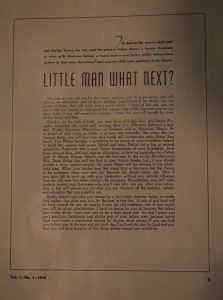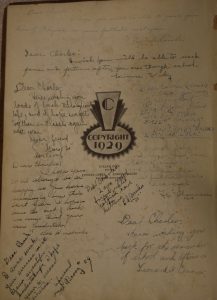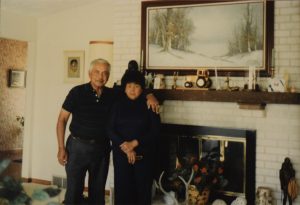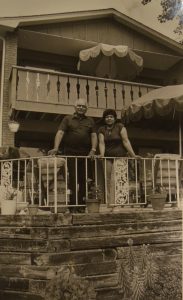“One of the lessons I learned from you is a man has a responsibility to his community and must fulfill that responsibility by giving back.” – excerpt from a letter written to Charles from Fred (Ricky) Harris, 2001
Charles Toney was born in La Crosse, Wisconsin in 1913. Charles and his family moved to Clinton, Iowa when Charles was a young boy. He attended Clinton High School and was very involved. Charles was on the swim team, the football team, the baseball team, and the track team. He played the clarinet in orchestra, and according to his classmates, Charles was a whiz in physics, chemistry, history, and public speaking.
It was in Clinton that Charles had his first encounter with discrimination when he was denied entry to a city pool. When he asked why he was not allowed in, the pool manager told him they did not want him swimming with white girls.
After Charles graduated high school in 1930, he went to St. Ambrose University in Davenport, Iowa to study chemistry. He was only there for a year before financial troubles due to the Great Depression hit. He left the University and eventually got a job as a welder at John Deere & Co. in 1936. When World War II began, Charles went to welding school and became the first welder of color in Iowa and Illinois.
- Charles and Ann pictured in their home
- Charles and Ann standing on the back porch of their house after Charles
- Portrait of Charles and Ann Toney
Charles married his wife Ann in 1943. At their house in Davenport, Charles and Ann had an in-ground pool that they invited the black neighborhood children to so they could learn to swim since they were not allowed in the city pool, much like Charles so many years earlier.

A letter from Charles to his son, printed in the first edition of the Sepia magazine
Ann and Charles were both certified barbers and beauty specialists, and together they ran the first black-owned business in Davenport. They also published a magazine called Sepia Record which highlighted black community members. The first publication featured a letter written by Charles to his son, in which Charles told his son he should be proud of his heritage.
Both were also heavily involved in their local NAACP and CIC chapters. From the very beginning of their marriage, Ann and Charles proved that they were willing to fight for Civil Rights on a local and national level. Charles and Ann were often honored for their work. Charles received an Honorary Doctorate in Public Service from St. Ambrose University in 1975. Charles died in 2009 and Ann died in 2012, both leaving behind a legacy of promoting better racial conditions in the Quad Cities.




Recent Comments